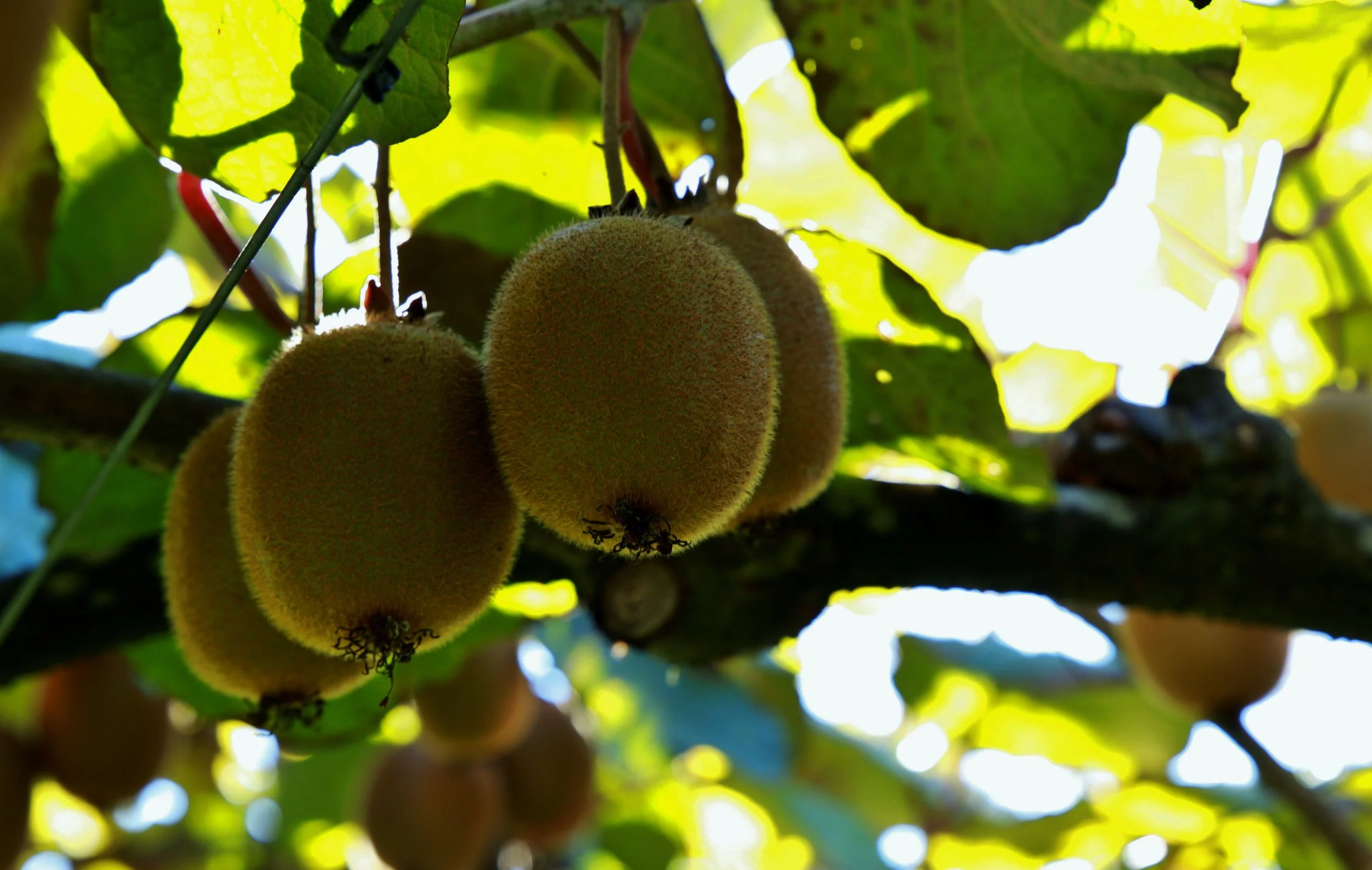Organics
Organic management starts with the soil
Organic management in primary production sees the farm/orchard as a whole ecology.
The view begins with the soil. The soil is a living, diverse ecosystem where plant roots interact with the microbes in the soil to gain the required nutrients. Soil fungi spread out from the plant roots to track down minerals and deliver them back to the plant. Soil bacteria living in the root zone help form that wonderful crumbly soil structure we all work for. Earthworms and other soil creatures work to aerate the soil and recycle nutrients for plant use. This soil diversity and health works to keep pest creatures from becoming a problem. Organic soil management aims to provide the best environment for the plant roots and their associated soil life. Tools such as compost, naturally mined minerals, seaweeds and fish based fertilisers are used. Organics is not a ‘do nothing’ approach, it is active management from the view point of optimising what a biologically active soil can do. Healthy, functioning soil is the basis for healthy trees, vines and pasture.
Above ground, the foundation of a healthy soil sets up the framework for a healthy plants and pasture but this, in itself, is not enough. Excellence in observation and farm or orchard management are prerequisites for successful outcomes, just as they are in non organic operations. A grower’s attention to detail, keen observation, completing the right task on time and to spec is best practice for all orchard operations. Farmer’s experience to optimise pasture residuals and stock numbers to ensure grass grows grass. Both orchards & farms benefit from diverse species sward in the orchard understorey and pastures to optimise sunlight harvesting. Attention to animal health and well being, including providing shelter and shade are vital for successful organic management.
The tools are different – pest and disease management inputs for orchards are derived from natural sources with as minimal environmental impact as possible. Pest and disease management first looks at non chemical approaches through removal of pest host plants, crop hygiene, habitat for natural predators and parasitic wasps. Approved chemicals are used when required.
Animal health improves with healthy, mineral rich pastures and provision of shelter and shade but sometimes animals still need health and immune support. Organic approved forms of licks and mineral supplements are available as are other tools for animal health including CBG, some electrolytes, vaccines, homeopathy and tonics derived from seaweeds, and fish by products.
Taking care of waterways, natural biodiversity and soil conservation are all integral to organic land management. Organic farm/orchards take responsibility for their own environmental impact.
As a farmer/orchardist you are a steward of your land for future generations, a commitment to organic management is a way of taking a step into accountability and leaving the land productive for your grandchildren.
Take the step – contact me now to begin that commitment.







